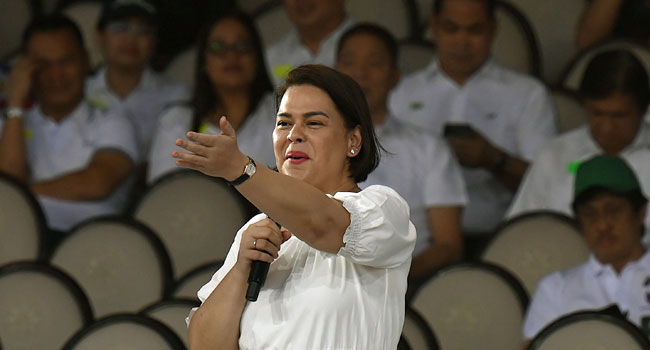News
Data Protection and People’s Rights Under Nigeria’s Data Protection Regulations (NDPR): Know Your Rights

Data Protection and People’s Rights Under Nigeria’s Data Protection Regulations (NDPR): Know Your Rights
In a time where private information is more and more important and at risk of being exploited, safeguarding people’s privacy is now a significant priority. The implementation of the Nigeria Data Protection Regulation (NDPR) in 2019 in Nigeria is a major move in protecting citizens’ personal information and ensuring organizations follow legal and ethical guidelines when handling data. As the number of Nigerians participating in digital activities like online banking, e-commerce, and social media increases, the NDPR is fundamental in influencing the collection, processing, and protection of data. This article examines the main provisions of the NDPR, the privileges it provides to people, and its influence on companies and the digital environment in Nigeria.
What Is NDPR?
The National Information Technology Development Agency (NITDA) introduced the Nigeria Data Protection Regulation (NDPR) in January 2019. The NDPR was created to tackle the increasing concerns about personal data misuse in both private and public sectors. It is in line with worldwide data protection trends, like the European Union’s General Data Protection Regulation (GDPR), while also meeting the unique requirements of Nigeria’s digital environment.
The goal of the regulation is to safeguard Nigerian citizens’ data from unauthorized access, exposure, or exploitation. It includes a range of industries like finance, telecom, education, health, and online shopping, which commonly involve gathering and handling personal data.
Key Provisions of the NDPR
The NDPR outlines specific guidelines on how organizations should handle personal data. Some of the provision as outlines in NDPR guidelines are:
Data Collection and Consent: Organizations must obtain explicit consent from individuals before collecting their personal data. This ensures that data subjects are fully aware of what information is being collected, the purpose of its collection, and how it will be used.
Data Processing: The regulation mandates that personal data should only be processed for legitimate and specified purposes. Organizations must ensure that the data is accurate and kept up to date. Processing personal data for purposes other than those originally specified is not permitted without further consent from the individual.
Data Security: One of the core elements of the NDPR is the requirement for organizations to implement adequate security measures to protect personal data. This includes safeguarding data from unauthorized access, data breaches, or any form of manipulation.
Third-Party Sharing: If personal data is to be shared with third parties, the organization must inform the data subject and obtain their consent. The third party must also adhere to the same level of data protection as stipulated by the NDPR.
Data Breach Notifications: In the event of a data breach, organizations are required to notify the affected individuals and NITDA within a specified period. This provision ensures that individuals can take action to mitigate the effects of a breach.
People’s Rights Under The NDPR
The acknowledgement of people’s rights regarding their personal data is a key aspect of the NDPR. The rule gives Nigerians various rights to manage how their data is treated. Some of the right are:
- Right to be Informed: Individuals have the right to be informed about the collection and use of their personal data. Organizations are required to provide transparent information on the types of data collected, the purpose of the collection, and how long the data will be retained.
- Right to Access: Data subjects have the right to request access to their personal data held by an organization. This means they can inquire about the specific data collected, the reasons for its collection, and whether it has been shared with third parties.
- Right to Rectification: If an individual’s personal data is inaccurate or incomplete, they have the right to request that the organization correct or update the information.
- Right to Erasure (Right to be Forgotten): Under certain circumstances, individuals can request that their personal data be deleted. This is particularly relevant if the data is no longer necessary for the purpose it was originally collected or if the individual withdraws their consent for its processing.
- Right to Data Portability: This allows individuals to obtain and reuse their personal data across different services. They have the right to request that their data be transferred from one service provider to another in a commonly used, machine-readable format.
- Right to Object: Individuals have the right to object to the processing of their personal data in cases where the processing is based on legitimate interests or public tasks, direct marketing, or scientific/historical research.
Rights Of Individuals In Cases Of Data Misuse, Breaches, Or Use Without Consent
The NDPR grants the data subject particular rights and solutions if their data is mismanaged, disclosed, or utilized without authorization. These rights give individuals the ability to find a solution and shield themselves from additional damage. Some important rights in such situations include:
- Right to lodge a complaint:
According to Section 3.1.1(e) of the NDPR, individuals have the option to file a complaint with NITDA or other authorized regulatory entities if they suspect their data has been mishandled, processed illegally, or exposed. This privilege allows people to seek legal recourse in cases of mishandling of their information by a company.
- Right to Compensation
The NDPR acknowledges the entitlement to receive compensation for harm caused by data breaches or unauthorized data handling. Individuals can request compensation from the data controller under section 2.10 of the NDPR if they can prove that their data rights violation resulted in harm. This clause guarantees that individuals affected by data breaches can receive compensation for any financial losses, emotional distress, or harm to their reputation.
- Right to withdraw consent
Individuals can revoke their consent for the processing of their personal data whenever they choose. As per Section 2.8 of the NDPR, organizations must respect these requests and stop processing the individual’s data unless there are strong legitimate reasons for the processing. This right is important when data is utilized without permission, enabling individuals to take back control of their personal information.
- Right to Data Erasure
If personal data is breached or used without authorization, individuals have the right to request erasure. According to Section 3.1.2(f) of the NDPR, individuals have the right to ask for the deletion of their personal data if it has been used without permission or if the reason for collecting the data is no longer valid. This right, sometimes referred to as the “right to be forgotten,” guarantees that unauthorized data use is stopped and eliminated from any future handling.
- Right to Restriction of Processing
If someone believes their data has been mishandled or misused, they can ask for processing restrictions under Section 2.10.2. This right enables people to halt additional data processing during ongoing investigations. It serves as a protection, making sure no additional damage occurs during the resolution of the problem.
Benefits To Individuals
When individuals’ rights are breached under the NDPR, they are eligible for certain benefits.
- Reclaiming Privacy: Through exercising the right to be forgotten or limiting additional data processing, individuals can take back authority over their personal information and reduce the consequences of its unauthorized exploitation.
- Financial Compensation: If individuals experience financial loss or emotional distress due to a data breach or misuse, they have the right to request financial compensation from the organization at fault. This serves as a deterrent for careless data handlers and compensates for the damages they cause.
- Legal Remedy: By utilizing the NDPR’s complaint procedures and regulatory supervision, people have the opportunity to take legal measures or regulatory actions to hold those responsible for data misuse or breaches accountable.
- Public Trust: The NDPR’s protections promote trust in the digital world, inspiring people to engage in online activities knowing their data rights are secure.
Compliance Requirements For Organizations
In order to comply with the NDPR, organizations must meet various obligations related to compliance. Some of these items are:
- Appointment of Data Protection Officers (DPOs): Organizations that process a large volume of personal data must appoint a DPO to oversee compliance with the NDPR and ensure the organization’s data practices are in line with the regulation.
- Annual Data Protection Audit: Organizations are required to conduct annual data protection audits and submit the reports to NITDA. This process helps organizations identify potential risks and ensure that they are taking the necessary steps to protect personal data.
- Fines for Non-Compliance: Failure to comply with the NDPR can result in significant penalties, including fines of up to 10 million Naira or 2% of an organization’s annual revenue, depending on the nature and severity of the breach.
Challenges and Gaps in NDPR Implementation
Even though the NDPR has created a strong foundation for safeguarding data in Nigeria, there are still obstacles in its execution. An important obstacle is the lack of public awareness and law enforcement. A large number of Nigerian citizens are still not completely informed about their data rights or the responsibilities that organizations have under the NDPR. Raising public education and awareness is essential in order to give citizens the power to safeguard their privacy.
Another difficulty that must be addressed is ensuring compliance. While NITDA has made progress in encouraging adherence, there are doubts about the agency’s ability to ensure proper enforcement of regulations, especially with major international companies, government agencies and smaller domestic enterprises.
Conclusions
The NDPR in Nigeria sets up rules for data protection and gives individuals rights to safeguard their personal information. The regulation offers various solutions, such as compensation and erasure rights, in situations where there is data misuse, breaches, or unauthorized processing. These safeguards are essential for establishing confidence in Nigeria’s fast-developing digital economy and guaranteeing the preservation of privacy in the era of digital technology. As the public becomes more aware of their data rights and enforcement becomes more rigorous, the NDPR will remain vital in influencing Nigeria’s digital future.
Written By Ibrahim Abuh Sani, Co-Founder, Eybrids.

Abu Ibrahim Sani, Co-Founder, Eybrids
Headlines
Akwa Ibom APC Gears Up to Receive President Tinubu as Governor Umo Eno Joins Party

The All Progressives Congress (APC) in Akwa Ibom State has announced its readiness to host President Bola Ahmed Tinubu and other top party leaders as it officially welcomes Governor Umo Eno into its ranks.
Speaking at a press briefing in Uyo on Friday, APC chieftain and former presidential aide, Senator Ita Enang, disclosed that the party was fully prepared to receive the president, Vice President Kashim Shettima, APC National Chairman, and governors elected on the party’s platform for the historic reception.
Governor Umo Eno had on June 6 formally defected from the Peoples Democratic Party (PDP) to the APC, in a move widely described as a political game-changer in Akwa Ibom.
Enang, a former Special Assistant to the President on National Assembly and Niger Delta Affairs, said the governor’s defection had effectively aligned the state with the central government.
He assured Governor Eno and his supporters that the APC would embrace them wholeheartedly and honour all agreements reached.
“As progressives, we shall work with the governor and his supporters to ensure that they fit into the party without hitches,” Enang stated. “We will also work with them to align programmes of the state government with the ideals and manifesto of the party.”
He further described the governor’s move as a “merger” that promises significant benefits for Akwa Ibom and its citizens.
The planned reception is expected to mark a major political event in the state, signaling a realignment of forces ahead of future elections.
Headlines
Ekiti Launches Aggressive Anti-Flood Campaign, Dredges Ofigba River

The Ekiti State Government has intensified efforts to prevent flooding across the state with the launch of a comprehensive dredging campaign, targeting critical waterways in both rural and urban areas.
Chairman of the Ekiti State Environmental Protection Agency (EKSEPA), Chief Bamitale Oguntoyinbo, disclosed this on Friday during an inspection visit to the ongoing dredging project at the Ofigba River in Ise-Ekiti.
Oguntoyinbo, who was accompanied by EKSEPA board members, said the visit was to assess the progress of work being carried out to mitigate flood risks in the community. He expressed satisfaction with the pace and quality of the dredging work.
“I and other board members of EKSEPA are delighted with the level of job done by the site engineer because he is actually working with the directives of three-kilometer dredging of waterways,” he said.
According to him, the dredging commenced on June 4, and so far, 1.8 kilometers of the river have been successfully cleared.
He applauded Governor Biodun Oyebanji for prioritizing the safety and welfare of residents by initiating the state-wide anti-flooding campaign.
“I want to commend our amiable governor, Mr. Biodun Oyebanji, for embarking on zero tolerance campaign against flooding in every community and town in Ekiti,” Oguntoyinbo stated.
He also praised the General Manager of EKSEPA, Mr. Olukayode Adunmo, for his commitment to the project’s supervision and success.
In his remarks, Adunmo emphasized the urgent need to clear waterways choked by refuse, which impede water flow and contribute to flooding during the rainy season.
“Dredging of Ofigba River in Ise-Ekiti in Ise/Orun Local Government Area is necessary because some of the waterways have been blocked by refuse,” he explained. “There is the need for us to remove every blockage to enhance free flow of water and avert flooding during heavy rainfall.”
Adunmo also commended Governor Oyebanji for taking proactive steps to protect lives and properties across the state.
Residents of Ise-Ekiti have welcomed the government’s intervention. Chief Godwin Ojo, a community leader, expressed gratitude to the governor for his timely action.
“We thank the governor for the move to avert flooding in our community,” Ojo said. “May God grant him more wisdom to pilot the affairs of the state to an enviable height.”
The dredging campaign forms part of the Oyebanji administration’s broader commitment to environmental safety and disaster prevention.
Developmental
Tinubu to visit Kaduna Thursday to inaugurate key projects

President Bola Tinubu is expected in Kaduna State Today Thursday for the inauguration of several key developmental projects executed by the administration of Gov. Uba Sani.
The News Agency of Nigeria (NAN) reports that the visit forms part of activities marking Sani’s two years in office.
The projects lined up for inauguration include the 300-bed Specialist Hospital in Millennium City, Kaduna, built by the state government to bolster the provision of healthcare services.
Tinubu will also inaugurate the Institute of Vocational Training and Skills Development in Rigachikun, road projects in Soba, and Samaru Kataf LGA’S as well as the 24-kilometre Kafanchan Township Road.
Others are the Tudun Biri Road, the 22km road linking Kauru and Kubau LGAs as well as the Vocational and Skills Training Centre in Tudun Biri.
Tinubu is also expected to unveil 100 Compressed Natural Gas (CNG) buses, as part of efforts to modernise the state’s public transportation system.
The projects are part of the administration’s focus on infrastructurde evelopment, healthcare delivery, youths empowerment, and economic growth.
The state government described the visit as a significant moment for the people of Kaduna and an opportunity to showcase ongoing efforts to transform the state through impactful governance.
Sani, who marked his second year in office this month, has prioritised human capital development, rural infrastructure, and jobs creation since taking office in 2023.
Tinubu’s visit to Kaduna State was rescheduled from Wednesday to Thursday.
He was initially supposed to visit Kaduna on Wednesday, but due to the recent attacks in Benue, he shifted his trip.
The president visited Benue on Wednesday to commiserate with the victims of the recent attacks and assess the humanitarian crisis.
During his visit to Benue, Tinubu met with stakeholders, including traditional rulers, political and community leaders, and youth groups, to seek lasting solutions to the hostilities.
He also condemned the ongoing violence and called on the residents to embrace peace and mutual understanding.
NAN recalls that the Benue Government had declared a work-free day for Tinubu’s visit, urging the residents to turn out in large numbers to welcome him.
-

 Headlines3 years ago
Headlines3 years agoFacebook, Instagram Temporarily Allow Posts on Ukraine War Calling for Violence Against Invading Russians or Putin’s Death
-

 Headlines3 years ago
Headlines3 years agoNigeria, Other West African Countries Facing Worst Food Crisis in 10 Years, Aid Groups Say
-

 Foreign3 years ago
Foreign3 years agoNew York Consulate installs machines for 10-year passport
-

 News10 months ago
News10 months agoZero Trust Architecture in a Remote World: Securing the New Normal
-

 Entertainment3 years ago
Entertainment3 years agoPhyna emerges winner of Big Brother Naija Season 7
-

 Headlines1 year ago
Headlines1 year agoNigeria Customs modernisation project to check extortion of traders
-

 Economy1 year ago
Economy1 year agoWe generated N30.2 bn revenue in three months – Kano NCS Comptroller
-

 Headlines1 year ago
Headlines1 year agoPhilippines’ Vice President Sara Duterte resigns from Cabinet







